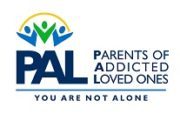Parents come to PAL or other support groups usually after suffering a tremendous amount of stress, fear and struggle. Once they reach this point of defeat, they seek support, and what they usually find is that their awareness grows quickly and immensely. Many feel “I can’t believe I didn’t find this earlier“ or “why doesn’t everybody know about this?” Through attending the meetings, they learn about addiction and how the family is affected, they quickly begin to see that many of their responses to the addict are not helping the addict or themselves. Sometimes even becoming aware that they are perpetuating dysfunction.
Simultaneously, as they are gaining hope and learning practical solutions, potential for change becomes a reality. Parents gain hope for themselves and for their child when they are able to identify with other parents who were once in their shoes, struggling, but are now happy and thriving whether the addict is sober or not. They find mentors who inspire them to grow and make changes and give hope that they can be free of the effect of an addiction in their lives.
Early in the process when parents first reach out for help and start attending a support group, they often desire a huge leap, a breakthrough change that comes all at once. Although this does happen occasionally it is not the norm. A more typical journey may be that the awareness shift within is quick, but the outer response when presented with a stressful situation with the addict takes more time to change.
Many changes will come quickly, but on occasion it is common for a parent to slip back into old behaviors or patterns. This can be terribly frustrating for the parent because they may think to themselves, “I know better!” but that is not all there is to it. We know better when it comes to many things. Everybody has had a bad or a good habit that is hard to break, or something they know that they should or ought to do but then when it comes into reality it doesn’t go like we planned. Conditioned responses to stressful situations with loved ones can be particularly difficult to change. For many parents, the responses to the addict took a long time to develop and are really ingrained. Asking a parent who has been doing it for 20 years to immediately stop enabling an addict, is akin to asking them to slam dunk a basketball, it is unlikely.
Thankfully, this is not a cause for concern and definitely not a reason to give up or fall into self-pity. What we are really seeking in recovery is progress not perfection. The hope given to us by the meetings, our new friends and mentors, and all of the new awareness provides us with an ideal to strive for. It gives us a picture of what we would like healthy interactions with our addicted children to be like, calm in the face of calamity. There’s not an expectation to meet this ideal in a certain period of time, it is critical for parents not to be too hard on themselves. Recovery is a marathon not a sprint, and it would be unwise to tire yourself too early. It is great to have a goal to aim for, i.e., I am not going to enable my addicted loved one’s substance use any longer, but every single action taken will not be perfect going forward. Even a little improvement at a time is great for peace of mind.
So, as you develop a picture of how you would like to respond to the addict in your life and any other life challenges you may be experiencing, please be mindful to account for the progress and strides forward rather than focusing on what you haven’t done yet. If you have a setback, bring it up in a meeting and make a plan for next time.
It’s very important to remember that making mistakes and having setbacks is a normal part of the recovery journey and life in general. It took time to build the perspectives, responses, fears, and anger that drove you to seek help, and it will take time to change those responses.
A Caveat: “Progress, not perfection” is not to be used as an excuse. Addicts often use it as a rationalization excuse during arguments saying things such as, “At least I left you a few dollars for bus fare when I stole your wallet!”
A couple of mental activities to help with seeing the progress in ourselves and others:
Count your little wins.
Can you name a few lately?
Have you seen your spouse make progress?
Have you seen another parent at a meeting make progress?
Do you take time to acknowledge it to them?
Remind yourself that we are all a work in progress, nobody has life down perfect or the right response for every situation. Do your best to grow with each opportunity and never lose hope.
Josh Azevedo is a guest blogger for PAL and is the Executive Director at The Pathway Program, https://thepathwayprogram.com


Comments are closed.